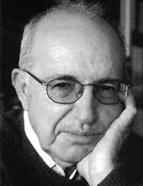

Born in Murça, the son of a wireman and the third of six children, António Borges Coelho completed primary school in his hometown in 1940. He then entered the Franciscan seminary in Montariol, Braga, but was expelled in 1945, accused of orchestrating a collective escape. His motivation was said to stem from ungodly readings, including works by Balzac and Eça de Queirós. Although he had not organised the escape, he had indeed considered it. After returning to Murça, the harsh local conditions deepened his social and political awareness. With the nearest high school located in Vila Real, he graduated as an external student in September 1948. The following month, he moved to Lisbon and enrolled in the Faculty of Law. In those difficult months, he relied on friends for support until he secured a modest job at the Junta Autónoma das Estradas, the public body responsible for planning, building and managing the national road network.
In early 1949, he became captivated by Norton de Matos' presidential campaign and enthusiastically joined it. Feeling disillusioned with his law degree, he considered abandoning his studies altogether. He was persuaded to continue, and instead he enrolled in the Historical-Philosophical programme at the Faculty of Arts and Humanities in the 1949-50 academic year. There, he joined the MUDJ (Juvenile Movement of Democratic Unity). After completing his first year, he dropped out during his second year to fully dedicate himself to the MUDJ, eventually becoming one of its leaders. In 1952, during a protest against a meeting of the North Atlantic Treaty in Lisbon, he was arrested for the first time and briefly detained. He was arrested again in January 1956. By then, he had been working clandestinely for six months as a member of the Portuguese Communist Party (PCP) and was actively involved with the MUDJ. After periods of imprisonment in the Aljube jail in Caxias and the PIDE prisons in Porto, he was tried in December 1956 and sentenced to two years and nine months in prison, along with a fifteen-year suspension of his political rights. Additionally, he was subjected to a security measure that could be extended beyond its six-month minimum.
